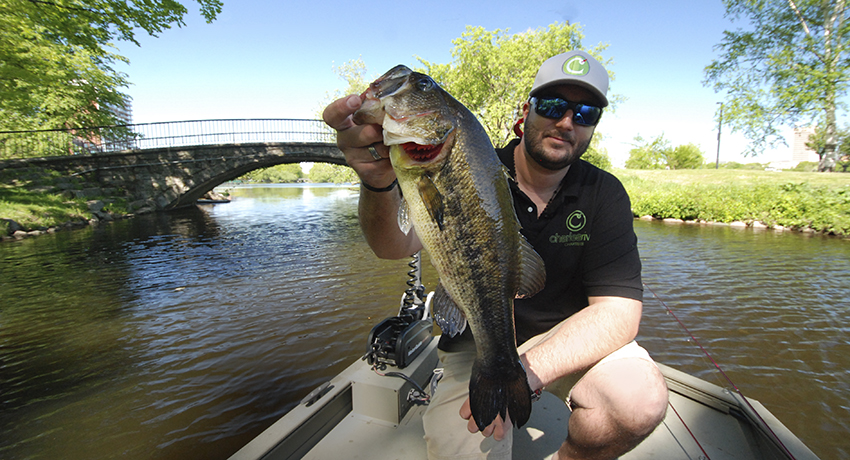Mercury Levels in Fish Caught in Mass. Waters Remain Dangerously High

PHOTO BY THOMAS C. RICHARDSON for ‘Go Fish…the Charles!’
The sweltering weather we’ve had this week is best enjoyed by floating in a dinghy, koozy-lined beer in hand, with a fishing line cast into the water—not sweating through your dress shirt just two T stops into your morning commute.
But if you do end up fishing this summer, and are fortunate enough to actually catch something, you may want to just throw it back.
That’s because the New England Center for Investigative Reporting (NECIR) published a report Monday, finding that while mercury emissions have dropped nearly 90 percent over the last two decades, mercury levels in Massachusetts’ freshwater fish remain dangerously high.
The NECIR found a disturbing lack of fish monitoring in New England, with budget cuts forcing the state to trim the number of lakes it tests in half. Meanwhile, Connecticut has not performed a fish mercury survey in more than 10 years. In fact, the U.S. Environmental Protection Agency no longer employs a full-time mercury monitor.
The NECIR also reports inconsistencies in the way the state warns fishermen. For example, Lake Pentucket in Haverhill has bilingual warning signs posted near its public access points, yet equally polluted bodies of water like Heard Pond in Wayland, Sheep Pond in Brewster, and Lake Cochichewick in North Andover lack any signs outlining the potential danger of consuming fish caught there. In the case of Sheep Pond, experts recommend pregnant women avoid fish caught there altogether, while the general public should limit its consumption to no more than twice a month.
You can read the NECIR’s full report here.


